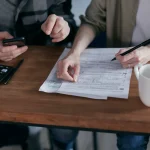
Meet e-Blockade, a service introduced during lockdown in order to make things easier to those residents of Croatia who owe money to the state…
As Gordana Grgas/Novac writes on the 2nd of July, 2020, during the temporary suspension of carrying out foreclosures on funds which was introduced due to the coronavius crisis, the state has recently expanded the available information to debtors as well as access to documents for the implementation of a simple consumer bankruptcy procedure through the popular e-Citizen system.
Namely, through the free e-Blockade service, users can now see, in addition to the “register of unexecuted payment bases”, the specification of the execution of the payment basis (for example, the enforcement decision, debenture, a misdemeanor order), as well as information on their order and the amount of outstanding liabilities recorded before the last basis for payment.
Some extra documents are also available, such as an invitation to the consumer to submit a statement for the implementation of a simple consumer bankruptcy procedure or a proposal for the implementation of that procedure.
According to experts in debt collection and restructuring, the newly introduced e-Blockade servic eases the situation for people who have so far had to keep going to pick up documents in person at Fina. Something that is loathsome about life in Croatia in general.
“The data that has been visible via e-Citizens so far was only the amount of the blockade and the date when the account was blocked or unblocked,” explained Igor Skrgatic, the owner of the company Be-On Consulting.
”It can now be seen which enforcement document is in the background [of a procedure], which is important to people because it isn’t always clear who the creditor is (as the creditor can also be represented by a law firm which is then seen as the bailiff). It’s good that documents for simple consumer bankruptcies are available online even though this measure didn’t come to life as expected,” he noted.
Due to the temporary measure introduced to delay in the implementation of the enforcement of funds in relation to all natural persons which is due to end on July the 17th, back in May, Fina recorded 9347 people with 814 million kuna of debt on its infamous list.
The real situation, which will be visible when the temporary measures expire later this month and the executions start, will more than likely be dramatically different.
Due to the unexecuted bases for payment on March the 31st this year, before the adoption of the coronavirus measures, 238,135 people were recorded in the register, and their debt amounted to 16.6 billion kuna (principal).
The largest part of that debt, in the amount of 5.9 billion kuna (excluding interest), was to banks, savings banks, credit unions, leasing, factoring and insurance companies.
The aforementioned “register” is in fact a list of all unexecuted bases for payment with data on the total amount of debt, type of basis for payment, issuer and creditor, date and time of the receipt of basis for payment, debt status and all other important information.
The Minister of Finance, Zdravko Maric, recently announced that the suspension of this measure will be extended for an additional three months, which means that the e-Blockade service could become extremely popular in the autumn months.
For more, follow our lifestyle section.











